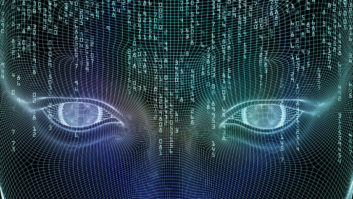A new report from McKinsey has warned that businesses that fail to adopt AI technologies into their workforce within the next 5-7 years, could quickly fall behind their rivals on a competitive and economic level.
The McKinsey Global Institute looked at five broad categories of AI: computer vision, natural language, virtual assistants, robotic process automation, and advanced machine learning, of which companies will likely use these tools to varying degrees to benefit their business, internally and externally.
‘Late adopters might find it difficult to generate impact from AI, because front-runners have already captured AI opportunities and late adopters lag in developing capabilities and attracting talent,’ McKinsey Global wrote in its report: Modeling the impact of AI on the world economy.
By 2030, the average simulation shows that some 70 percent of companies ‘might’ have adopted at least one type of AI technology.
https://www.youtube.com/watch?v=jC0I08qt5VU
Recent developments in robotics, AI, and machine learning have put the world on the cusp of a new automation age. Robots and computers can not only perform a range of routine physical work activities better and more cheaply than humans, but they are also increasingly capable of accomplishing activities that include cognitive capabilities once considered too difficult to automate successfully, such as making tacit judgments, sensing emotion, or even driving.
Automation will change the daily work activities of everyone, from miners and landscapers to commercial bankers, fashion designers, welders, and CEOs.
(To learn more about the types of AI and machine learning solutions available today , take a look at our special Need to Know report here)
‘Almost every occupation has partial automation potential, as a proportion of its activities could be automated,’ McKinsey wrote in a recent report. ‘We estimate that about half of all the activities people are paid to do in the world’s workforce could potentially be automated by adapting currently demonstrated technologies. That amounts to almost $15 trillion in wages.
Likewise, AI has the potential to deliver additional global economic activity of around $13 trillion by 2030, or about 16 percent higher cumulative GDP compared with today.
The report suggests early adopters (investors), could potentially double their cash flow, whilst those that don’t will see a decline.

Various estimates suggest more than $46 billion will be spent on AI services by 2020 by businesses, a figure rising to above $51 billion 12-months later.
“It is possible that AI technologies could lead to a performance gap between front-runners (companies that fully absorb AI tools across their enterprises over the next five to seven years) and non adopters (companies that do not adopt AI technologies at all or have not fully absorbed them in their enterprises by 2030).
“Front-runners tend to have a strong starting IT base, a higher propensity to invest in AI, and positive views of the business case for AI.
“At the other end of the spectrum, non adopters might experience around a 20 percent decline in their cash flow from today’s levels, assuming the same cost and revenue model as today.”
Examples of where AI is expected to have the greatest and earliest impact upon, include:
- E-commerce
- Customer Service (including call centres)
- Healthcare (including lifestyle)
- Automotive
- Cybersecurity
- Finance
- Legal
Alex Guillen, Market Manager at Insight UK, responded to the report: “Artificial Intelligence paves the way towards creating a next generation workforce, where bots deal with the time-consuming repetitive tasks offer organisations the change to redeploy workers to more engaging and value-creating tasks.
“But as business leaders increase adoption of complex AI, they’re going to look at how to configure the organisation to manage, monitor and support the bots – just like you would people. To be successful, organisations need to have a culture fitting of automation in the same way they need a culture to fit a diverse workforce.
“What organisations need to realise is that technology has and is continuing to transform the way we work. The future will move fast, and this will put a premium on people and organisations who can adapt quickly.”
According to Oxford University, the following professions each have a 99pc probability of being replaced by computers in the future.
- Data Entry Keyeres
- Library Technicians
- New Accounts Clerks
- Photographic Process Workers and Processing Machine Operators
- Tax Preparers
- Cargo and Freight Agents
- Watch Repairers
- Insurance Underwriters
- Mathematical Technicians
- Sewers, Hand
- Title Examiners, Abstractors, and Searchers
- Telemarketers
Meanwhile, the following professions are said to be widely safe.
- Recreational Therapists
- First-Line Supervisors of Mechanics, Installers, and Repairers
- Emergency Management Directors
- Mental Health and Substance Abuse Social Workers
- Audiologists
- Occupational Therapists
- Orthotists and Prosthetists
- Healthcare Social Workers
To learn more about the types of AI and machine learning solutions available today , take a look at our special Need to Know report here







